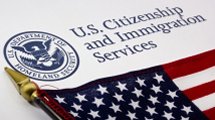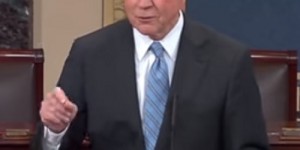CIS — Many more plans, guidelines, and policies not yet issued.
President Obama’s Department of Homeland Security issued 10 memos outlining the administration’s planned lawless amnesty, but they are limited in detail and leave much of the policymaking to executive branch agencies.1 As such, much remains unknown about exactly how this scheme will operate.
For example, in a memo titled “Expansion of the Provisional Waiver Program”, the administration has expanded provisional unlawful presence waivers for immediate relatives of U.S. citizens and Lawful Permanent Residents (LPRs) who, under law, are not eligible to adjust status in the United States and must travel abroad to obtain a visa. This is a problem for those who have been in the country illegally for more than 180 days because if they travel home and attempt to come back in, they will discover they are barred from returning for three or 10 years.2 The purpose of this law is to deter people from living illegally in the United States for long periods of time.
On March 4, 2013, the Obama administration offered a waiver to immigrant visa applicants who are spouses, minor children, or parents of U.S. citizens. But the new memo extends this to “all statutorily eligible classes of relatives for whom an immigrant visa is immediately available.” This means the spouses, children, and parents of lawful permanent residents and the adult children of U.S. citizens and LPRs will now have access to these waivers.
As part of this, DHS Secretary Jeh Johnson — who authored the memos — announced that he has directed “USCIS to provide additional guidance on the definition of ‘extreme hardship’.” The memo notes that to be eligible for the waiver, aliens much demonstrate that their absence from the United States would cause extreme hardship to a spouse or parent who is a U.S. citizen or LPR.
More notable is the fact that Johnson notes that the statute “does not define the term, and federal courts have not specifically defined it through case law.” In other words, the administration is going to come up with as-of-yet unseen guidelines about the definition of “extreme hardship” that Johnson notes “would provide broader use” of the waiver…




























